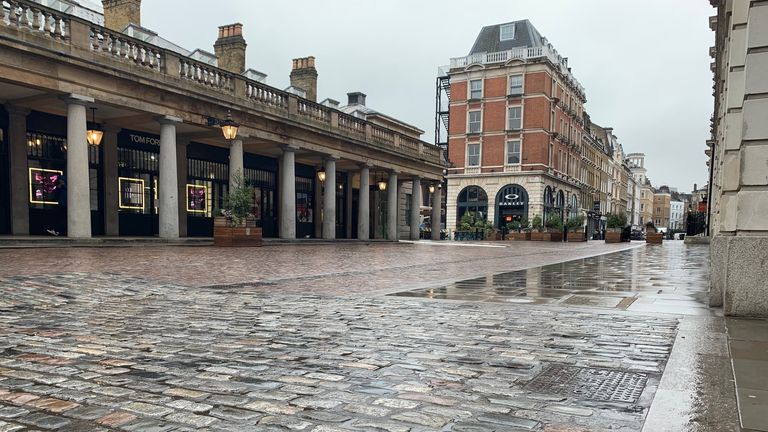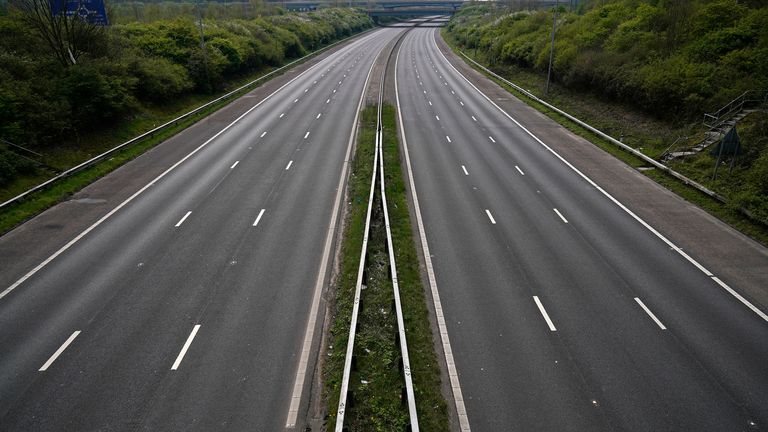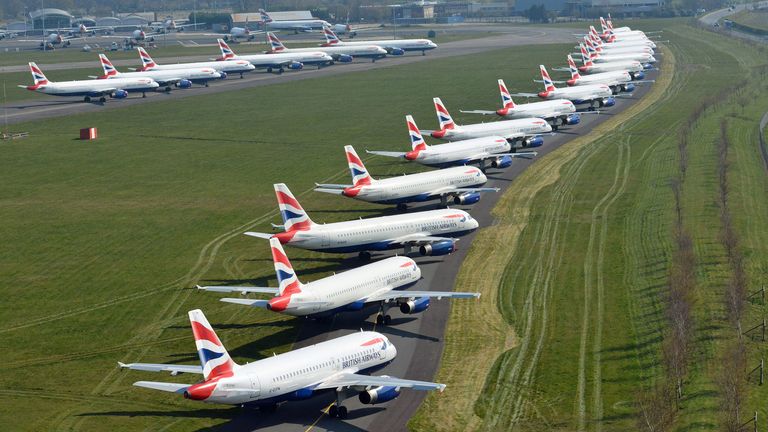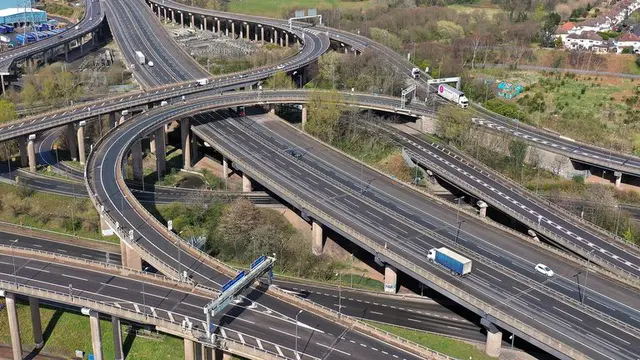Scientists monitoring the Earth's surface have said they have seen a notable reduction in the sound of ground vibrations in the UK since it went into lockdown.
Experts at the British Geological Survey found that the noise generated by people going about their daily lives has dropped by between 20% and 50% during the last five weeks.
This compares with noise levels before the coronavirus shutdown and restrictions came into force.

Image:An empty Covent Garden in London after COVID-19 restrictions came into force in mid-March
Seismometers are normally used to record earthquakes and volcanic activity, but they also track the vibrations in the planet's upper crust, or seismic noise, caused by humans such as air and road traffic and industrial work.
The biggest falls in seismic noise were recorded at airports, train stations, busy roads and construction sites, as well as schools and universities.
Dr Brian Baptie, head of seismology at the British Geological Survey in Nottingham, said: "We have got a network of around 100 sensors all across the UK measuring seismic activity.
"What we have since lockdown is that noise levels at nearly all of our stations have gone down by somewhere between 20% to 50%."

Image:Motorways are deserted as people heed the official advice and stay home
Dr Paula Koelemeijer, a global seismologist at Royal Holloway, University of London, said a seismometer located near King's Cross station in the capital recorded a 30% drop in seismic noise while a 25% fall was recorded by a device at her home in Twickenham in west London.
She said: "This suggests more people are in their houses, there is less car traffic, and fewer trains are running."
Dr David Cornwell, a geophysicist at the University of Aberdeen, said noise levels at his university campus have dropped by 65% since students were sent home in the middle of March.
**:: Listen to the All Out Politics podcast on **
Apple Podcasts
**, Google Podcasts
, Spotify
, Spreaker
**
He said this meant some of his seismometers are able to pick up natural noises, like those generated by the wind and the sea.
"Globally, other seismologists have reported noise levels in cities to be between 20% and 50% lower compared to the noise levels recorded before lockdown, but there have been a few cases, such as one in Nepal, where the reduction has been as large as 80%," he said.

Image:British Airways aircraft parked at Bournemouth Airport. Pic: National Police Air Service
He said the drop in human-generated noise meant scientists have been able to spot smaller earthquakes and other seismic events from around the world.
"If a minor earthquake happened in Japan, I would be able to record it in my office or in our instruments across the UK," he said.
Meanwhile, Reuben Peckham, director of 24 Acoustics, a consultancy firm which helps architects design noise-sensitive buildings, said: "Birdsong has definitely been more prevalent in our monitors since lockdown."
 简体中文
简体中文

